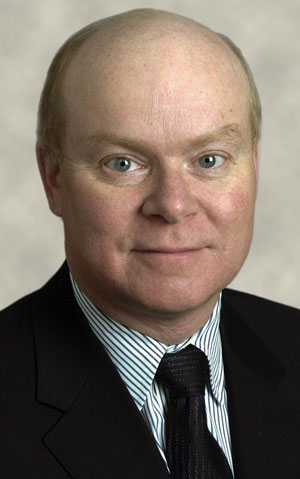Lawyers expressed shock last week after a Toronto counsel’s name was connected to an investigation of alleged insider trading, saying it’s incomprehensible for members of the bar to breach obvious terms of solicitor-client privilege.

“Lawyers generally don’t have an insider trading problem because anything that you learn as a solicitor is confidential and can only be used for the benefit of your client,” says Ontario Bar Association past president James Morton.
“It’s just wrong on so many different levels - you don’t even have to go to the Securities Act level, it’s simply a breach of solicitor-client privilege and the duties and obligations of a solicitor to their client.”
The Ontario Securities Commission and the U.S.’s Securities and Exchange Commission are conducting a joint investigation into allegations of potential insider trading. A pair of former Osgoode Hall Law School students have been linked to the investigation.
Former classmates Stan Grmovsek, now a business consultant, and Gil Cornblum, a former Toronto lawyer for Minneapolis-based Dorsey & Whitney LLP, remained close after meeting at Osgoode Hall 17 years ago, according to a Globe and Mail report.
Grmovsek made a series of successful stock bets for himself and relatives on companies that were later subject to takeover bids and had been clients of Cornblum, according to the report. Grmovsek recently agreed to a freeze of most of a $1.1-million windfall in trades, and Cornblum has reportedly lost his partnership with the U.S. firm, the paper said.
Details of the investigation are sketchy at this early stage, but the matter has sent shockwaves along Bay Street.
Morton says the optics of a lawyer’s name being attached to such allegations are never good for the profession’s reputation, but maintains that companies won’t alter their relationships with counsel because of it.
He says companies have always known there’s a risk of lawyers misusing information, but problems rarely occur - this is believed to be the first time in Canadian history that such allegations have been made against a lawyer.
Morton notes that while many lawyers have been found to have stolen money from trust accounts, work for counsel in that area remains solid.
Wilfrid Laurier University associate business professor William McNally says company insiders and investment bankers are most frequently the types of professionals caught up in insider trading allegations.
McNally, who is in the midst of researching the past 20 years of OSC insider trading reports, notes that lawyers have always been privy to sensitive information that could be used for insider trading, but he sees no reason why lawyers would stick out as being particularly vulnerable to allegations.
“There was a finance prof who got caught by the SEC,” says McNally. “So, you know, it could be anyone.”
McNally says his research suggests insider trading simply isn’t aggressively prosecuted in Canada.
“There’s a belief that it’s easy to get away with,” he says. “If you go back and look at the number of cases the OSC has prosecuted over the years, it’s not a very big number. I think it’s in the 30s, and the number of successful prosecutions they’ve got is very small.”
McNally says, “I guess it’s just so easy - it looks easy.”
The issue of lawyers being included in insider trading investigations may be coming to a boil in the U.S. With nine lawyers being sued in the past year based on such allegations, at least one SEC official has expressed concern over the upsurge.
Morton says our southern neighbours are no different in their approach to solicitor-client confidentiality, and suggests stronger prosecutorial powers of the U.S.’s national regulator make for more allegations against lawyers when compared to Canada’s provincial regulators, whose resources are limited.
Paul Findlay, a partner at Borden Ladner Gervais LLP in Toronto who practises corporate and commercial law, says it’s unclear whether the different styles of regulation would contribute to an unscrupulous lawyer’s actions.
“Presumably, anybody who does this thinks they can get away with it, and maybe - and we don’t know - lots of people do get away with it,” says Findlay. “Clearly there are people who do get caught, and for those that get caught, I think it basically finishes their career, whether they’re a lawyer or an investment banker.”
The audacity of any lawyer acting on an opportunity to share privileged information that could be used to make money on the stock market is bewildering, says Findlay.
“It would amaze me that a lawyer practising in the securities law area, public companies area, would ever get themselves into a situation where they’re trading on that inside information, or passing on that inside information to somebody who they knew would or could use the information,” says Findlay.
“Because it’s so contrary to their duties to their client that the effect of it would be so devastating to their reputation, their practice, and so on, that . . . you just couldn’t see how it would be worth the risk.”

 “Lawyers generally don’t have an insider trading problem because anything that you learn as a solicitor is confidential and can only be used for the benefit of your client,” says Ontario Bar Association past president James Morton.
“Lawyers generally don’t have an insider trading problem because anything that you learn as a solicitor is confidential and can only be used for the benefit of your client,” says Ontario Bar Association past president James Morton.